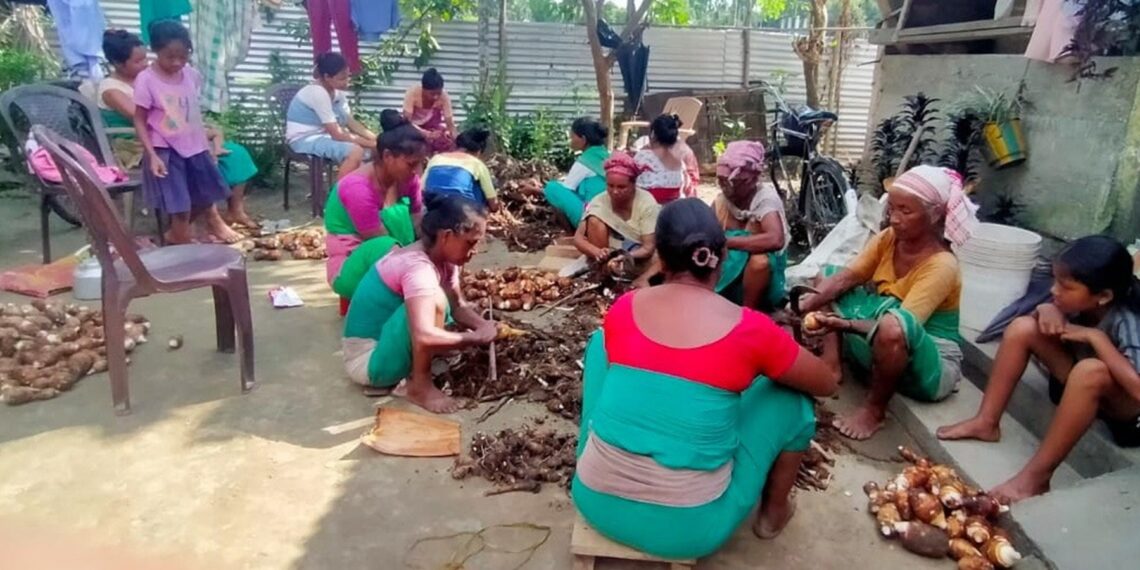GUWAHATI: In the ongoing battle against human-elephant conflict (HEC) in Assam, the involvement of women from local communities has proven instrumental in fostering cooperation and implementing mitigation strategies.
Supported by the SBI Foundation (SBIF), environmental organisation Aaranyak has been spearheading efforts across Udalguri, Baksa, and Tamulpur districts, with a particular focus on empowering women economically and enhancing their skills to handle HEC-induced emergencies.
Through initiatives aimed at economic empowerment and skill development, women in HEC-affected villages have transitioned from sleepless nights filled with fear to a sense of security and normalcy.
Rita Boro, 53, a community volunteer from Segunbari village, exemplifies the impact of training and empowerment.
After participating in a First Aid programme supported by the SBI Foundation, Rita applied her newfound skills to assist a wounded man, underscoring the practical value of such training in rural communities.
The programme aimed to equip individuals with essential skills and knowledge to assist during elephant encounters and emergencies requiring basic pre-hospital treatment.
Since then, Rita has frequently collaborated with Aaranyak to conduct similar training sessions in her community.
In addition to her role as a mid-day meal cook at a local school, Rita actively contributes to community welfare through social assistance.
She also engages in various agricultural and non-agricultural activities within a Self-Help Group (SHG).
In another instance, eighteen women from landless families in Badlapara village embraced alternative crop cultivation to mitigate losses from elephant raids.
Despite facing challenges, their collective effort yielded a successful turmeric harvest, demonstrating the resilience and determination of the community in overcoming adversities.
Recognising the threat posed by cattle, these women pooled their resources to acquire five bundles of wire fencing, totalling ₹4,750, to enclose their plot.
This collective endeavour effectively protected their cultivation area from livestock intrusion, showcasing the strength of community collaboration in tackling challenges.
Anaithi Boro, a single mother from Salguri village, transformed her subsistence livelihood through support from Aaranyak and SBIF, cultivating elephant-resistant crops like mustard.
“”With support from Aaranyak-SBIF, I planted 3.75 kg of mustard seeds in two bighas (0.50 hectares) and spent Rs. 1600 for tractor plowing. After 2.5 months, seeing my field bloom with mustard flowers was a joy. I harvested around two quintals and will sell them in the market, relieved that my crops were unharmed by elephants,” she said.
Her success story underscores the transformative potential of sustainable agriculture in mitigating HEC impacts.
Overall, the collaborative efforts of Aaranyak, SBIF, and local women have not only mitigated the human-elephant conflict but also empowered communities to secure their livelihoods effectively.















